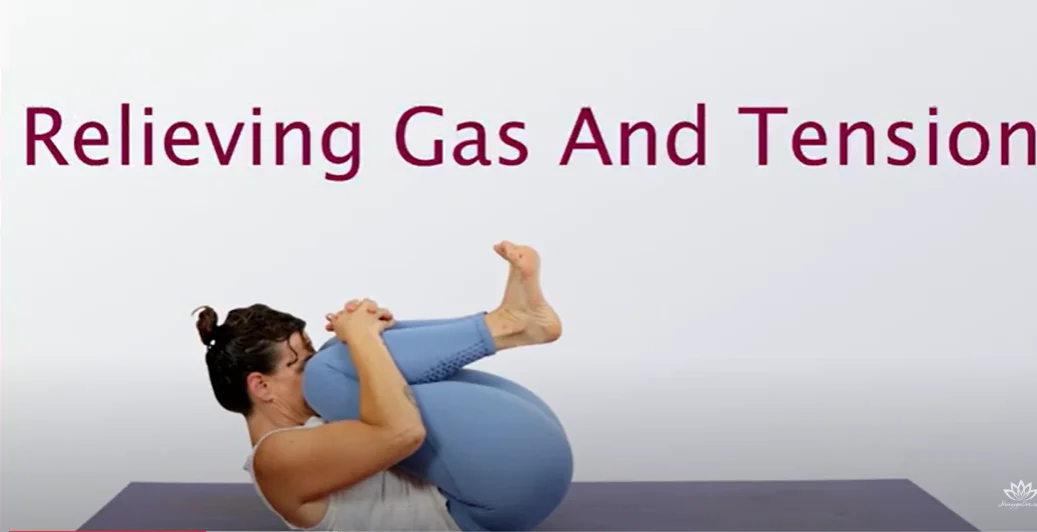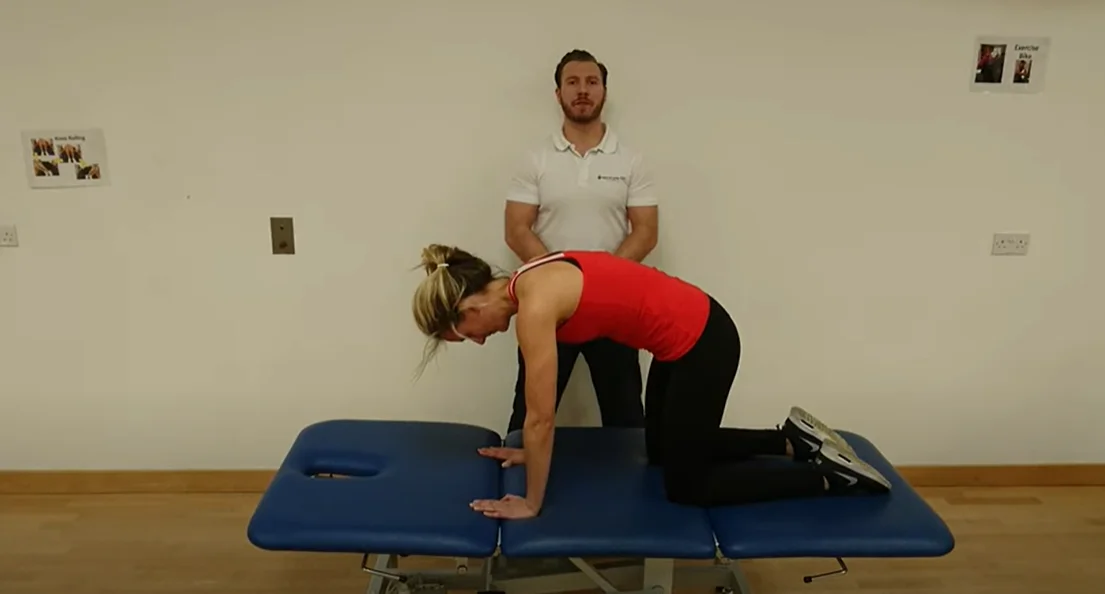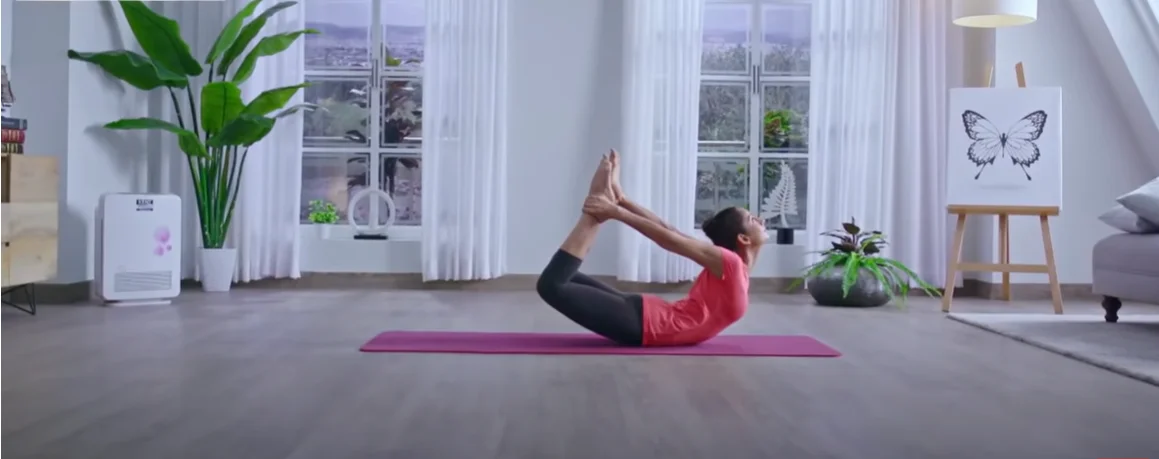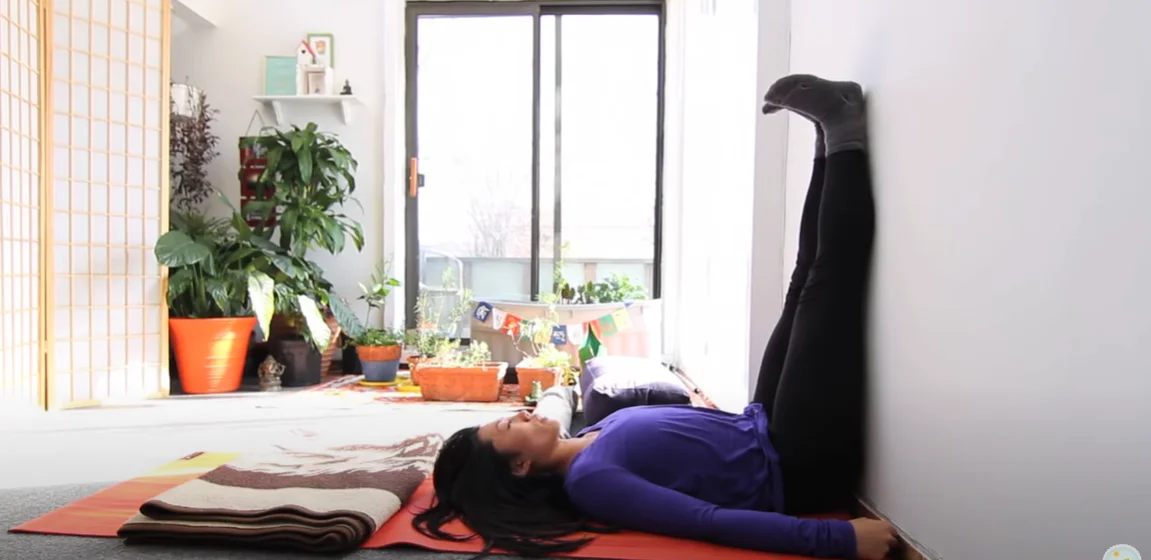Feeling backed up? You’re not alone. Constipation, that sluggish feeling in your gut, affects millions of people. But before you reach for harsh laxatives, consider a natural approach: yoga!
Yoga postures, or asanas, can stimulate your digestive system and get things moving again. Here’s how:
- Twists: These asanas massage your abdominal organs, helping to move gas and stool along.
- Forward Bends: These stretches relax your digestive system and encourage blood flow to the abdomen.
- Inversions: These poses can help shift trapped gas and improve overall digestive function.
- Hip Openers: Tight hips can contribute to constipation. Opening your hips can improve digestion and ease elimination.
- Deep Breathing: Focused breaths improve circulation and can stimulate the digestive tract.
Remember, listen to your body and modify poses as needed. Here are 10 yoga poses specifically chosen to target constipation relief:
-
Wind-Relieving Pose (Pawanmuktasana):

- Lie on your back with knees bent and feet flat on the floor.
- Hug one knee to your chest, clasping your hands around it.
- Gently rock side to side, massaging your lower abdomen.
- Repeat with the other leg.
-
Child’s Pose (Balasana):

- Kneel on the floor with your toes together and knees hip-width apart.
- Sit back on your heels, resting your torso between your thighs.
- Fold your forehead onto the floor or a pillow for added comfort.
- Breathe deeply and relax your entire body.
-
Cobra Pose (Bhujangasana):
- Lie on your stomach with your toes together.
- Place your palms flat on the floor beside your shoulders.
- Press firmly into your hands, lifting your upper body off the floor.
- Keep your hips on the ground and gaze slightly upwards.
- Hold for a few breaths, then gently lower yourself back down.
-
Downward-Facing Dog (Adho Mukha Svanasana):
- Start on your hands and knees, with your hands shoulder-width apart and knees hip-width apart.
- Push your hips back and up, straightening your legs as much as possible.
- Form an inverted V shape with your body.
- Keep your heels reaching towards the floor (don’t worry if they don’t touch).
- Hold for a few breaths, then lower yourself back to your hands and knees.
-
Happy Baby Pose (Ananda Balasana):
- Lie on your back with knees bent and feet flat on the floor.
- Bring your knees towards your chest and grab the outsides of your feet with your hands.
- Gently rock side to side, keeping your lower back pressed into the floor.
- Smile and enjoy the gentle stretch!
-
Bow Pose (Dhanurasana):

- Lie on your stomach with your chin resting on the floor.
- Reach back and grab your ankles with your hands.
- Lift your chest and thighs off the floor, arching your back slightly.
- Hold for a few breaths, then gently release yourself back down to the floor.
-
Crescent Lunge Twist (Ardha Chandra Chapasana):
- Stand with your feet hip-width apart.
- Step one foot back, bending your front knee and reaching your hands towards the floor (or a block) beside your front foot.
- Twist your torso to look up over your front shoulder.
- Hold for a few breaths, then repeat on the other side.
-
Supine Twist (Supta Matsyendrasana):
- Lie on your back with your arms outstretched to the sides, palms facing down.
- Bend one knee and bring your foot flat to the floor outside your opposite hip.
- Gently twist your torso towards the bent knee, looking over your shoulder.
- Hold for a few breaths, then repeat on the other side.
-
Legs-Up-the-Wall Pose (Viparita Karani):

- Find a clear wall space.
- Lie on your back with your hips close to the wall.
- Extend your legs straight up the wall, letting gravity pull them towards the floor.
- Relax your body and breathe deeply.
-
Bridge Pose (Setu Bandhasana):

- Lie on your back with your knees bent and feet flat on the floor, hip-width apart.
- Lift your hips off the floor, forming a bridge shape with your body.
- Interlace your fingers under your body for support (optional).
- Hold for a few breaths, then gently lower yourself back
Following Your Practice and Additional Tips
Hold for a few breaths, then gently lower yourself back down. Remember, this is not a race! Breathe deeply and slowly throughout each pose, focusing on relaxation and the internal movements in your abdomen.
Listen to your body: It’s important to honor your body’s limitations. If any pose feels uncomfortable, don’t force it. You can modify the poses or simply skip them and move on to the next one.
Warm-up and cool-down: Always begin your yoga practice with a gentle warm-up to prepare your body for movement. This could include simple stretches, sun salutations (surya namaskar), or light cardio. After your practice, take some time to cool down with relaxing stretches and deep breaths.
Hydration is key: Constipation can often be exacerbated by dehydration. Make sure you are drinking plenty of water throughout the day, especially before and after your yoga practice.
Diet matters: Certain foods can contribute to constipation. Consider incorporating more fiber-rich foods into your diet, like fruits, vegetables, and whole grains. Conversely, limit processed foods, red meat, and dairy (if you have a sensitivity).
Regularity is key: Just like with any exercise routine, consistency is important. Aim to practice yoga for constipation relief at least a few times a week, even if it’s just for 15-20 minutes. The more you practice, the more your body will adjust and respond to the poses.
Consult with a healthcare professional: If your constipation is severe or persists for more than a few days, it’s important to consult with a healthcare professional to rule out any underlying medical conditions.
Yoga for Everyone:
The beauty of yoga is that it’s adaptable for all levels of experience and physical abilities. Don’t be discouraged if you can’t perform a pose perfectly. Focus on what feels good for your body and gradually increase the difficulty of the poses as you progress.
With a dedicated yoga practice and some lifestyle adjustments, you can find natural relief from constipation and promote overall digestive health. Remember, be patient, listen to your body, and enjoy the journey!


